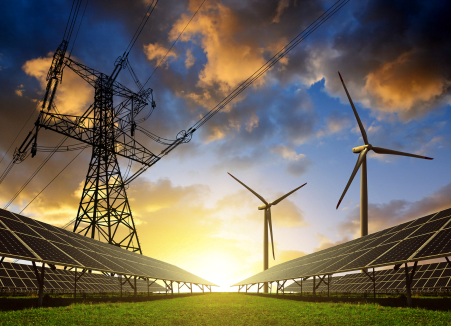National Grid ESO has partnered with two DNOs and energy tech firm Electron to collaborate on a shared generation and storage asset data register.
The RecorDER project will see the electricity system operator work alongside SP Energy Networks (SPEN) and UK Power Networks (UKPN) to develop a register of distributed generation and storage assets that sit on their respective distribution networks.
And blockchain technology is to play its part, helping the register’s ‘integration layer’ be deployed and hosted by collaborating parties, which removes the need for large-scale infrastructure or a central party to host the entire system.
That register, the consortium said, stood to improve the visibility and availability of data at the asset-level, enabling new systems and processes that would help decarbonise and reduce operating costs of the overall system.
In addition, the project hopes to prove that better data in the energy sector could improve forecasting and modelling and allow for more coordinated actions across flexibility markets, helping new business models emerge.
RecorDER builds on the Energy Networks Association’s Open Networks System Wide Resource Register and recent work from the government’s Energy Data Taskforce, which last week issued five recommendations for the sector to adopt in order to make data more open and accessible, factors deemed crucial to net zero targets.
The first phase of the project is to focus on mapping generation and storage assets with an installed capacity over 1MW, using existing network data, before taking on more advanced applications such as improving asset contractual visibility, which will improve the amount of market procurement data available.
While just SPEN and UKPN are to take part in the project’s initial stage, further phases will look to incorporate additional DNOs and bring smaller energy resources – those with capacities below the current 1MW threshold – into play.
Jo-Jo Hubbard, chief executive and co-founder at Electron, said the project was a “great example of networks collaborating to deliver benefits to their customers”.
“This is an important first step in the process of integrating distributed assets and allowing them to play their full role in balancing the electricity system,” she said.
Caroline Tortora, head of NGSO Innovation, added: “Embracing new technology is essential to managing the energy system efficiently and RecorDER is one example of how we are working in partnership across the industry to identify new and exciting ways to work together. If successful, this register could lay the foundations for a robust GB-wide flexibility market across transmission and distribution, unlocking huge value for consumers and driving the transition to a low-carbon flexible energy future.”









